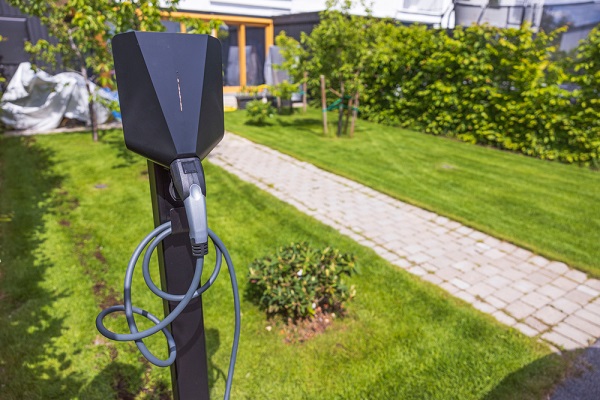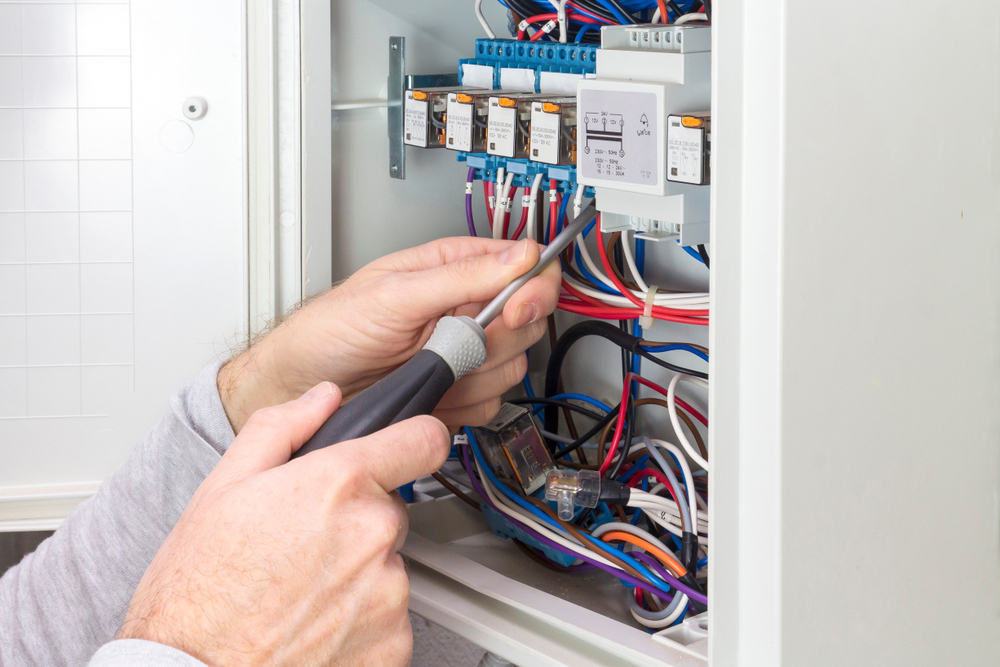
Electric Car and Home Charging Installation at Home
Are you new to the world of electric cars? You may have heard that they come with many benefits, such as saving money on gas, a lower carbon footprint, better performance, and lower maintenance. But because most car owners are still learning how an electric car works, it can be tough to determine the best way to get your car to run. While you might be used to pulling into the gas station to refuel, what do you do when an electric car starts to run out of juice?
Public charging stations are becoming much more common, but for the best electric car-owning experience, you’ll want to charge your car at home. Your local Medfield electrician can always assist with installing home car charging stations, giving you the power and control to keep your car plugging along.
Types of Electric Charging Stations
One of the exciting parts of owning EVs is that they offer much more refueling flexibility than gas-powered vehicles. There are a few different levels of electric car charging stations, all of which have their benefits and drawbacks. Electric car owners can use a dedicated charging station, but they also can combine these methods to fit their needs. For example, you could kick off a road trip with a fully charged EV thanks to an at-home charging station and stock up again with a public charging station.
Here are the three common kinds of charging stations available to EV owners.
Level 1 Charging
Electric cars will all have a Level 1 charging cord. These are handy, as you can plug them directly into your home’s 120-volt outlet. The downside is that charging takes longer than other options. However, it is often good enough for the electric car owner to take a quick drive here and there. Despite the accessibility of a level 1 charging cord, it is still recommended to have an electrician check your home’s electrical wiring before you start charging. This way, you can avoid running into any problems like power surges or breakers constantly tripping.
Level 2 Charging
Level 2 charging is much more efficient and requires the help of professional electricians to install it in your home. The charging station will be hard-wired or cord set compatible and use a 240-volt outlet. If your electric car is plugged in, this charging option will yield somewhere between fifteen and eighty miles per hour. And as an added benefit, level 2 home car charging stations often come with rebates, so talk with your electrician about your options.
DC Fast Charging
This level of charging is usually found at public charging stations. It is easily the fastest, but they’re generally not worth the hassle for home installation because of their cost.
Which Charging Option Is Right for You?
While DC fast charging is always an option if you are looking for a public charging station, how do you choose between a Level 1 and Level 2 charging option when you are at home? Here is the basic performance breakdown of the two home car charging stations.
Level 1 has the following features:
- 120 volts
- Fully charges a hybrid EV in roughly three to seven hours
- Fully charges a battery EV in nine to twenty hours
- Allows you to plug your vehicle directly into a standard 120-volt home outlet
Level 2 has the following features:
- 240 volts
- Fully charges a hybrid EV in roughly one to three hours
- Fully charges a battery EV in four to eight hours
- Requires you to have an EV charging station installed by an electrician
These charging estimates will vary depending on how many miles were driven and the vehicle’s battery capacity, but they give you some insight into the differences between the two options. Typically, level 1 charging is slow but relatively simple, provided your home can power your EV. A level 2 station can charge the same vehicles at nearly twice the speed but requires more upfront costs from the installation.
Regardless of which charging station you go with, you will want to call a professional electrical company to help assess your needs. A consulting electrician can also use your EV, electrical wiring, and driving habits to help you figure out which option would be best for you.
Electric vs. Gas: What’s the Cost?
Often said that electricity is overall much less expensive than the price of gas. But does that account for the installation and maintenance of a charging station? How do they stack up when you are considering utility bills, installation costs, and rebates?
The reality is that EVs tend to have higher upfront costs than gas-powered models. However, the rising gas prices, increasing affordability of electric models, and a windfall of new environmental tax credits will often offset this sticker shock. And EVs also boast lower maintenance costs, making them cheaper to operate throughout their lifespan.
In terms of the charging station, a level 2 charging station will set you back around $400, while installations can be anywhere between $500 and $1500, depending on the extent of work being done. But it is important to consider that your home charging station installation often pays for itself; the money you will save in gas prices and rebates will easily exceed the upfront expenses.
Electric Car Charging FAQs
It is normal for new owners to have some burning questions about how their EV works. Here are a few of the common EV questions that electricians get asked by Medfield homeowners who are new to electric-powered vehicles.
How Do I Get a Home Charging Station Installation?
A team of licensed, professional electricians in your area should be able to help you with an EV station installation. However, not all companies will know how to do the installation correctly, so make sure you are working with a company experienced with EV charging stations. A qualified technician will discuss your personalized options based on the type of electric car you have and the speed of the charge you need.
Where Else Can I Charge My EV?
Ideally, you will have a charging station at home that is fit to give you all of the power you need for daily use. But when you stumble into a situation where you need to charge on the go, like on a road trip or a long, impromptu drive, public charging stations are there for you. The rising interest in electric cars has resulted in public stations becoming more standard, especially in cities, so keep an eye out for them.
What Can I Expect from My Monthly Bills with a Home Charging Station?
Your utility bills will inevitably go up when you charge your EV at home. However, you will also end up paying much less for gasoline. How much your bills increase will vary depending on how often you’re charging your EV and for how long. It’s also worth noting that electricity rates tend to be higher in summer than winter.
You can look into an option called Time-Of-Use rate. This rate can help you lower costs by charging your EV during off-times, such as in the evening and early morning hours.
Qualified Electricians for Your Charging Station Installation
Are you in Medfield and looking for an answer to your EV power needs? Let the electrical experts at Paul Macrina help you find the perfect fit. Whether you need an electrical inspection to ensure your home can handle the EV charging, or you are ready to commit to a Level 2 station installation, we can help. Call today to discuss your options with one of our electricians.
STAY IN THE LOOP

